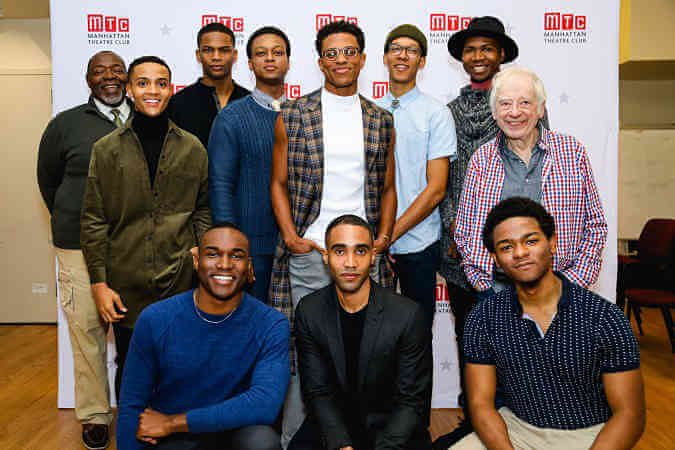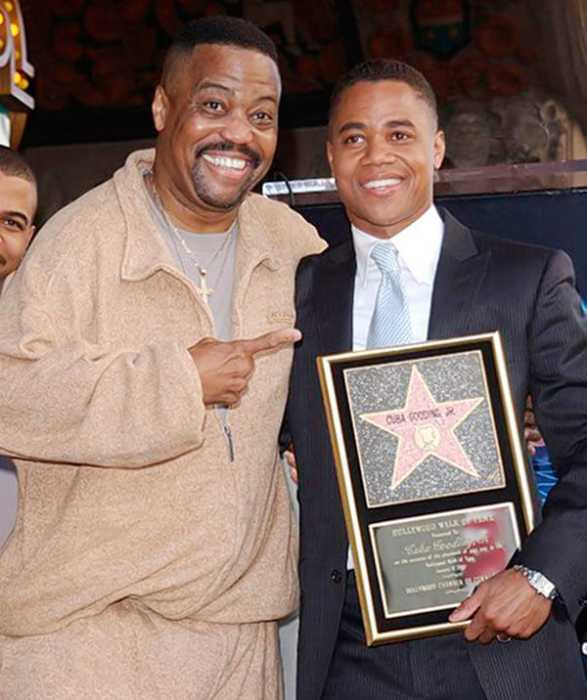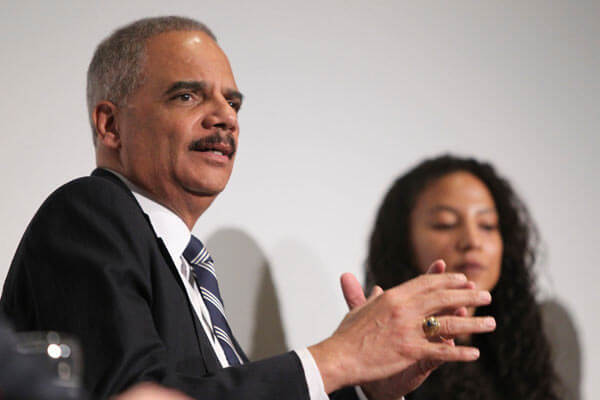The title “Choir Boy” suggests singing and at least one boy talented enough to chorus required melody and lyrics.
A poster promoting the latest Broadway play to open present a chorale of young, Black men marked by a singular singer towering above a quartet.
However, after a one hour 35 minutes staging at the Manhattan Theater Club at the Samuel J. Friedman Theatre, an ensemble of talented young thespians reveal a passionate, engaging, relatable, relevant, coming-of-age story written by Tarell Alvin McCraney.
McCraney is the winning playwright that won accolades for his scripting of “Moonlight,” a film that won Academy Awards and more importantly showcased some of the pains some adolescent Black boys might encounter when confused by sexual conflict.
Now making his Broadway debut as a playwright, here again, McCraney addresses the issue by taking audiences through a chorus of song and dance references.
J. Quinton Johnson (Bobby Marrow), Jeremy Pope (Pharus Johnathan Young), John Clay III (Anthony Justin “AJ” James), Caleb Eberhardt (David Heard), Nicholas L. Ashe (Junior Davis) with Daniel Bellomy, Johnathan Burke, Gerald Caesar and Marcus Gladney comprise the ensemble.
And with headmaster Marrow portrayed by Chuck Cooper and Austin Pendleton, tasked with teaching tolerance to an academically divided choir, the entire cast spotlights an elite academy where prep school boys confront their fears, obsessions and future ambitions.
Not unlike any prestigious learning institution the Charles R. Drew Preparatory School for Boys admits promising students – some of means, some well-connected and some on scholarship.
Similarly with each class, there is often a bully, a reserved individual, a braggart, a distinguished pupil and once in a while, an effeminate, closeted youth who may or may not strive to graduate without creating turmoil.
Pharus is the latter.
Conspicuously animated he is obvious and irritatingly homosexual to at least one chorister.
Tapped as the leader of the choir, he is also the target Bobby aims to shame and vilify for being too “prissy.”
To complicate matters, Bobby is not only a big bully he is also the nephew of the headmaster.
Pharus, although focused on his goals is committed to Christian doctrine, friendly, outgoing and confident of his singing talent.
Others in the choir have other issues.
As a matter of fact each boy bear a burden –insecurities, abundances, brawn, home-sickness, loneliness among them.
David carries the responsibility of fulfilling a family mission none before him has. That is to graduate from an educational institution.
AJ, Pharus’s brawny roommate and Junior, Bobby’s yes-man contend with other adolescent woes.
But through scenes of on-campus revelations without intermission, the focus is Bobby versus Pharus.
Bobby regards Pharus as different, “swishy” and gay.
Pharus would prefer that Bobby resign from the choir or better yet, disappear.
And while he harbors little malice or contempt, Pharus’s main goal is to lead the choir singing the school song for the second time — a dream he longed to repeat at the commencement ceremony.
In his junior year, Pharus stood up to the task but was derailed when Bobby taunted and provoked him to stop midway the lyrics exalting obedience.
Frail and unaware of the shallow perceptions of his gestures and mannerisms, Pharus is now a senior who must prove himself worthy of the leadership task, make his mother proud and also test his mettle against Bobby’s homophobic comments.
Compelling are scenes in the locker room.
A reflective story about a barbershop experience also resonates with sadness.
Through phone calls to mothers, director Tripp Cullman manages to impart messages in songs such as: “Sometimes I feel Like A Motherless Child” and LTD’s “Love Ballad.” They help to explain the travails that unfold when boys transition to men.
As for the sole white actor, Mr. Pendleton is endearing a teacher as any who in his heyday might have marched alongside Dr. Martin Luther King Jr. through treacherous territories and intimidating times.
Cooper, the other adult, portrays a fair headmaster who must maintain the traditions of southern mores and culture.
The play which debuted last month to a limited run was recently extended.
While the cast is making their debut on Broadway, look for Pope when he returns to the Great White Way as Eddie Kendricks in the musical “Ain’t Too Proud.”
The play will regale Motown Records’ rhythm and blues quintet, The Temptations.
Catch You On The Inside!



















